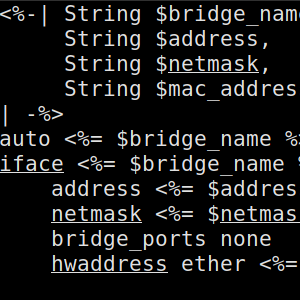
Debugging sporadic connectivity issues of Docker containers
At work we have started to set up new continuous integration servers. We have decided to build the whole setup based on into individual Jenkins instance managed via Docker. Moreover, most build slaves on the instances are dynamically-created Docker containers themselves. To spawn up these slaves, the Jenkins masters need write access to the Docker socket. Of course, this would be a security implication if they had access to the socket of the main Docker daemon on the host that operates all services, including the Jenkins instances themselves. Thus, we added a second daemon to the host just for the purpose of executing the volatile build slaves. However, we soon noticed that containers executed on this additional daemon frequently showed DNS resolution errors. The remainder of this post will explain the details of how we tried to track down this problem with all the ugly details being involved there. ...